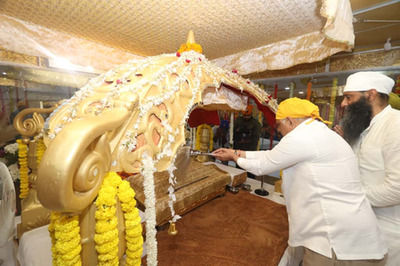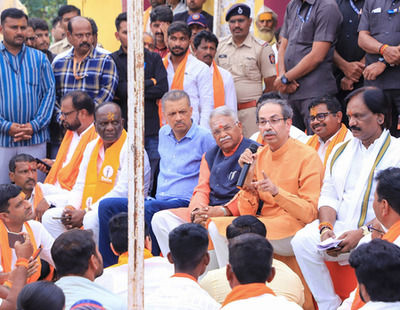
Dirty Washrooms at Public Events: Attending a live comedy show is supposed to be a fun, stress-free experience. However, for many attendees at a recent event in Delhi, the experience turned sour because of something as simple and essential as poor washroom hygiene. The incident came to light when wellness coach Mitushi Ajmera shared a viral video on Instagram describing her unpleasant experience at Zakir Khan’s live show at Indira Gandhi Stadium. Her story has since opened up a larger conversation about hygiene, women’s safety, and the lack of basic facilities at public venues in India.
Mitushi arrived at the stadium with excitement and energy, ready to enjoy an evening full of laughter. But what she encountered was far from funny. She discovered that most of the washrooms were either locked or in an unhygienic state. The few that were open were in deplorable condition—broken seats, non-functional flushes, and long queues of women, including pregnant ladies, waiting in discomfort. In her video, Mitushi voiced what many women have been silently enduring at public gatherings.
She described how poor sanitation is not just an inconvenience but also a serious health concern. Many women tend to avoid drinking water during such events to skip using unclean toilets, which often leads to health problems like urinary tract infections (UTIs), dehydration, and kidney-related issues. This behavior, born out of necessity, highlights how neglected sanitation can impact not only comfort but also well-being.
The Hygiene Crisis at Public Venues
https://www.instagram.com/reel/DQmC_0pkmLw/?utm_source=ig_web_copy_link
This incident brings into question the management of hygiene and sanitation at large-scale public events. When thousands of people attend a show at a government-managed venue like Indira Gandhi Stadium, it becomes the responsibility of both event organizers and facility managers to ensure proper maintenance. Clean toilets are not an additional service—they are a basic human requirement.
What makes the issue more concerning is the complete lack of accountability. Even though the event was paid for, attendees were left with minimal facilities. The situation reflects a larger systemic failure in public event management, where hygiene often takes a back seat to profits and crowd control.
Impact on Women’s Health and Dignity
For women, the lack of clean and functional restrooms is not merely an inconvenience—it is a challenge to their dignity and health. As Mitushi pointed out, women often restrict their water intake before attending events or while traveling to avoid using unhygienic toilets. This practice, though seemingly minor, has serious health repercussions. Dehydration can cause fatigue, dizziness, and kidney strain, while holding urine for extended periods can lead to bladder infections or UTIs.
Such health concerns are entirely preventable if event organizers and authorities prioritize hygiene. Unfortunately, despite the rising awareness, many venues in India still fail to meet even basic cleanliness standards.
Public Reactions and Social Awareness
Mitushi’s video resonated with thousands of women across the country. Within a day, her post garnered over 643,000 views on Instagram. Many users took to the comments to share their own experiences of facing similar challenges. Some expressed empathy, while others demanded accountability from event organizers and the Delhi government.
One user mentioned staying dehydrated during events to avoid using public restrooms, while another highlighted the plight of pregnant women in such situations. A few even suggested that Zakir Khan himself could use his influence to raise awareness about the issue. The collective response reflects a shared frustration that has been long ignored by event management bodies.
The Larger Conversation on Sanitation and Public Responsibility
The viral video has once again drawn attention to the broader issue of sanitation in public spaces. Despite being a global capital city, Delhi often faces complaints about unclean public toilets, lack of maintenance, and poor hygiene infrastructure. When such lapses occur during high-profile events, they highlight the urgent need for stricter sanitation policies and on-ground supervision.
It’s not just about aesthetics or convenience—it’s about ensuring public health and dignity. The government and private event organizers must collaborate to make hygiene a non-negotiable aspect of public events. Regular cleaning staff, real-time maintenance checks, and open access to restrooms should be the norm, not the exception.
A Call for Change
Mitushi Ajmera’s message in her video was clear: clean toilets are not a luxury; they are a basic necessity. Her courage to speak out has inspired others to raise their voices too. This issue goes beyond one event; it touches every public gathering, from concerts and sports matches to fairs and festivals.
Authorities must treat sanitation as a top priority. Implementing quality checks before events, ensuring gender-friendly facilities, and maintaining continuous supervision during large gatherings can prevent such unpleasant experiences in the future.
The message is simple—good hygiene is not optional; it’s fundamental. Every attendee deserves a clean, safe environment regardless of where they are. As awareness grows, it’s time for action to replace negligence.
Conclusion
Mitushi Ajmera’s experience at Zakir Khan’s show was unfortunate, but it has sparked a necessary discussion about hygiene, health, and responsibility. Her viral video serves as a reminder that something as basic as clean washrooms should never be compromised, especially in public spaces.
The outrage and discussions following her post have shown that people are no longer willing to tolerate such negligence. Hopefully, this collective awareness will push authorities and event organizers to make cleanliness and accessibility a priority at every public venue.
Until then, stories like these will continue to remind us of one truth—hygiene is not a privilege; it’s a right that every citizen deserves.
-
Bhupendra Patel offers prayers on Guru Nanak Jayanti in Gujarat's Gandhinagar

-
Muslim man's second marriage cannot be registered if first wife objects: Kerala High Court

-
Thackeray slams MahaYuti govt for announcing farm loan waiver by June next year, seeks immediate implementation

-
Will Ronaldo be in action for Al-Nassr against Sandesh Jhingan and Co tonight?

-
Tripura Government Invests in Rural Markets to Boost Agricultural Self-Reliance
